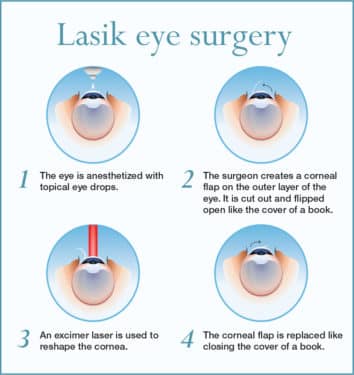Refractive Lens Exchange Explained: What Your Ophthalmologist Isn't Telling You
Refractive Lens Exchange Explained: What Your Ophthalmologist Isn't Telling You
Blog Article
Material Composed By-Carpenter Dunlap
Have you ever before thought about Refractive Lens Exchange (RLE) as an alternative for vision modification? While it isn't as extensively discussed as LASIK, RLE could be a game-changer for your vision. Lots of people overlook its advantages, assuming traditional methods are their only choice. But what are the actual benefits, and what might your ophthalmologist not be telling you regarding this treatment? Let's check out the ins and outs of RLE together.
Comprehending Refractive Lens Exchange: The Essentials
Refractive lens exchange (RLE) is a surgical procedure that can considerably enhance your vision, specifically if you're handling presbyopia or severe refractive errors.
Throughout RLE, your eye surgeon eliminates your eye's natural lens and replaces it with a man-made one tailored to your vision requires. This treatment can remedy nearsightedness, farsightedness, and astigmatism, providing you more clear vision without depending on glasses or contact lenses.
The surgery is generally quick, taking less than an hour, and the majority of clients experience very little pain. Recovery is relatively quick, enabling you to return to your daily tasks shortly after.
If you're considering RLE, speaking with your optometrist can assist you establish if it's the appropriate selection for you.
Trick Differences In Between RLE and Typical Cataract Surgical Procedure
While both refractive lens exchange (RLE) and traditional cataract surgery involve replacing the eye's natural lens, their key goals and patient profiles vary considerably.
RLE is targeted at individuals looking for to decrease their dependence on glasses or call lenses as a result of refractive errors, typically before cataracts develop. On the other hand, typical cataract surgical treatment typically targets people that've created cataracts, which shadow the lens and harm vision.
The lenses utilized in RLE can offer a more comprehensive range of vision adjustment, while typical cataract surgical procedure typically entails standard monofocal lenses.
In mouse click the next document , RLE prospects are often more youthful and in good total health, whereas cataract people may be older and have other health problems.
Selecting the ideal treatment relies on your particular vision demands and situations.
Possible Benefits and Factors To Consider of RLE
If you're thinking about refractive lens exchange (RLE), you'll locate a number of possible benefits that may boost your lifestyle.
RLE can offer you with clearer vision, reducing or getting rid of the need for glasses or call lenses. It provides a possibility to attend to presbyopia and other refractive mistakes concurrently, commonly improving your overall visual acuity.
Furthermore, RLE can be an excellent alternative if you're not an ideal candidate for LASIK. However, https://www.dovepress.com/a-prospective-comparative-clinical-study-to-evaluate-the-safety-and-ef-peer-reviewed-fulltext-article-OPTH is essential to consider the factors to consider, like the expense, prospective risks, and the recuperation duration.
Reviewing your details requirements with your optometrist can help you make a notified decision, guaranteeing you select the very best course for your vision adjustment.
Final thought
To conclude, refractive lens exchange uses a distinct option for vision adjustment that goes beyond what LASIK can provide. It's important to weigh the advantages against potential threats and expenses before deciding. Don't hesitate to ask your ophthalmologist the tough inquiries to guarantee you fully comprehend the procedure and its effects for your vision. With the right info, you can confidently select the best option for your eyes and way of living.
